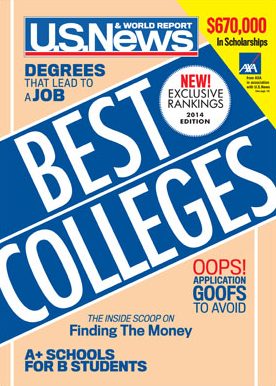How Colleges Lie About Their Student Job Prospects
By:
Last week, Anna Alaburda, a graduate of Thomas Jefferson School of Law, finally got a chance to use her degree — against her alma mater.
Alaburda, a 2008 graduate, is suing the school for inflating "the employment data for its graduates as a way to lure students to enroll," according to the New York Times.
Alaburda, who is saddled with $170,000 in student debt, said she would not have chosen Thomas Jefferson had she not been wooed by employment figures: 80.1 percent of Thomas Jefferson grads were allegedly working within nine months of getting their degree. Alaburda applied to 150 firms, only hearing back from one that was "less favorable than non-law related jobs that were available to her," according to the lawsuit.
As Quartz noted, in 2011, Thomas Jefferson reported that 92 percent of graduates held full-time jobs, even though the rate at which their students' passed the bar exam was less than 50 percent.

It's hardly the first case challenging law schools on their use of skewed employment data.
Some 15 lawsuits, according to The Times, have cropped up in recent years accusing schools of using misleading employment data — counting non-law related jobs like waitressing in employment figures, for example — in efforts to court students. Judges in previous cases have sided with schools, saying students who thought a law degree would guarantee them a job in the field should be held accountable.
The case is poised to address specific questions about how law schools present themselves to prospective students, which is especially important as law graduates have faced diminishing job prospects in recent years.

It also highlights larger questions about the accuracy and trustworthiness of school rankings.
 Education Week - edweek.org
Education Week - edweek.org"I think there are lots of problems with it, frankly," former Secretary of Education Arne Duncan told the Diane Rehm Show in 2013. "And I think it has created a lot of perverse incentives that actually increase costs for families like yours."
At Thomas Jefferson, Duncan's criticism may not have been unfounded. In 2012, a former career services assistant director at the school said in a court document she had been told to falsify employment data.
"I routinely recorded currently unemployed students as 'employed' if they had been employed at any time since graduation," Karen Grant told the Washington Post. "As a result, the employment data that I entered into the Excel files included currently unemployed students who were inaccurately categorized as 'employed.'"
